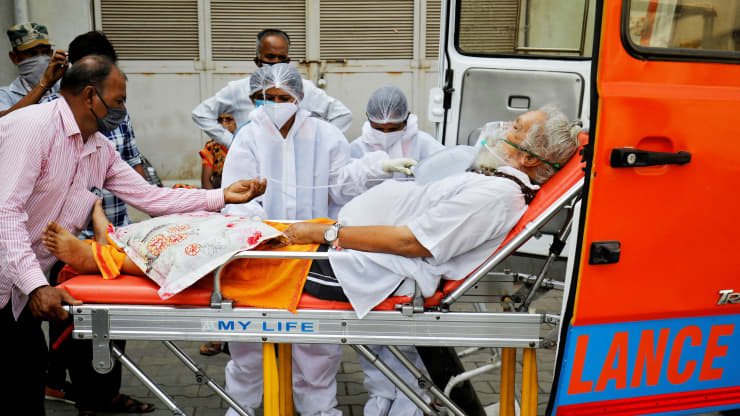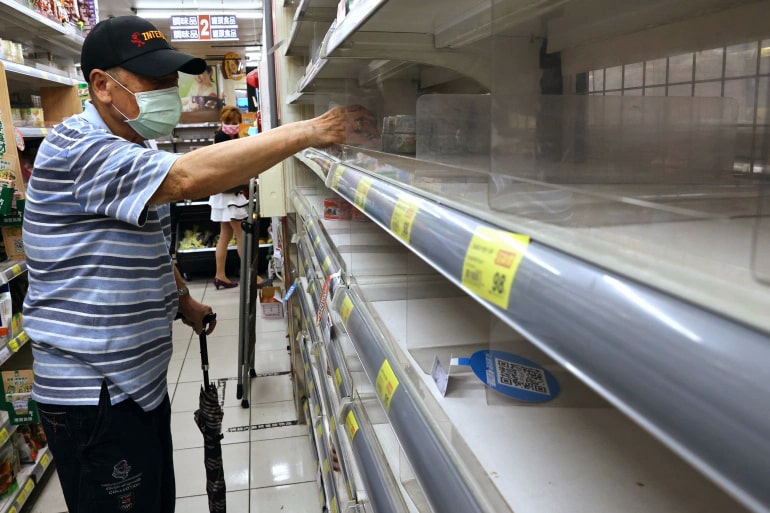Experts warn panic buying, lockdowns may spark global food inflation
| Vietnam Covid-19 latest: Lockdown on Hanoi’s Covid-19-hit area lifted | |
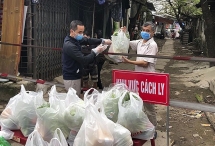 | "Hanoi whole-city lockdown" is a complete fabrication |
| Italy’s Venice turns crystal clear amid COVID-19 nationwide lockdown |
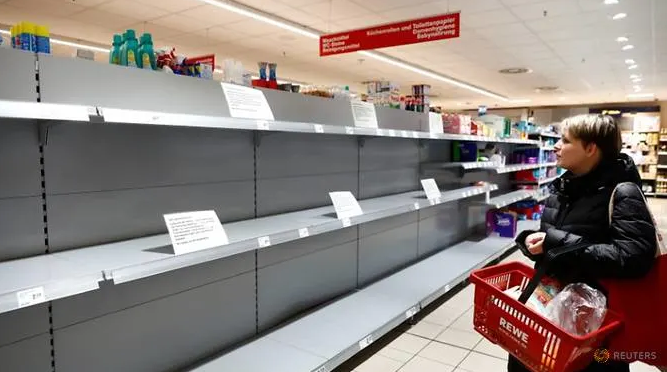 |
| A woman looks at an empty shelf with a sign announcing the rationing of toilet paper to one pack per person at a Rewe grocery store in Potsdam, Germany, March 20, 2020. REUTERS/Michele Tantussi |
With more than 270,000 infections and more than 11,000 deaths, the COVID-19 epidemic has stunned the world and drawn comparisons with periods such as World War Two and the 1918 Spanish flu pandemic.
"All you need is panic buying from big importers such as millers or governments to create a crisis," said Abdolreza Abbassian, chief economist at the United Nations' Food and Agriculture Organisation (FAO).
"It is not a supply issue, but it is a behavioural change over food security," he told Reuters by phone from Rome, the FAO headquarters. "What if bulk buyers think they can't get wheat or rice shipments in May or June? That is what could lead to a global food supply crisis."
Consumers across the world from Singapore to the United States have queued at super markets in recent weeks to stock up on items ranging from rice and hand sanitizers to toilet paper.
The global benchmark Chicago wheat futures rose more than 6 per cent this week, the biggest weekly gain in nine months, while rice prices in Thailand, the world's second largest exporter of the grain, have climbed to the highest since August 2013.
France's grain industry is scrambling to find enough trucks and staff to keep factories and ports running as the panic buying of pasta and flour coincides with a surge in wheat exports.
Restrictions imposed by some European Union countries at their borders with other member states in response to the pandemic are also disrupting food supplies, representatives of the industry and farmers said.
However, global wheat stocks at the end of the crop marketing year in June are projected to rise to 287.14 million tonnes, up from 277.57 million tonnes a year ago, according to the U.S. Department of Agriculture (USDA) estimates.
World rice stocks are projected at 182.3 million tonnes as compared with 175.3 million tonnes a year ago.
Logistics are likely to be a major global issue, analysts said.
"There is about 140 million tonnes of corn that goes in ethanol in the United States and some of that can used for food as it won't be needed for fuel, given the drop in oil prices," said Ole Houe, director of advisory services at brokerage IKON Commodities
"The concern is having food at the right time in the right place."
Asian buyers were inactive this week with uncertainty looming in the market.
"We are not sure about the demand. What it is going to look like in June or July?" said one Singapore-based purchasing manager at a flour milling company that has operations across Southeast Asia. "Restaurant business is down, and as a result demand is a bit soft right now."
Asian wheat importers, including the region's top importer Indonesia, have been taking a bulk of the cargoes from the Black Sea region amid a global oversupply.
Oil exporting nations in the Middle East, which are also net grain importers, are likely to feel more financial pain with crude losing more than 60 per cent of its value this year.
"Net oil exporters' capacity to buy grains has dropped given the fall in oil prices and depreciation in currencies," said FAO's Abbassian.
"There will be less capacity to take policy actions to boost economies."
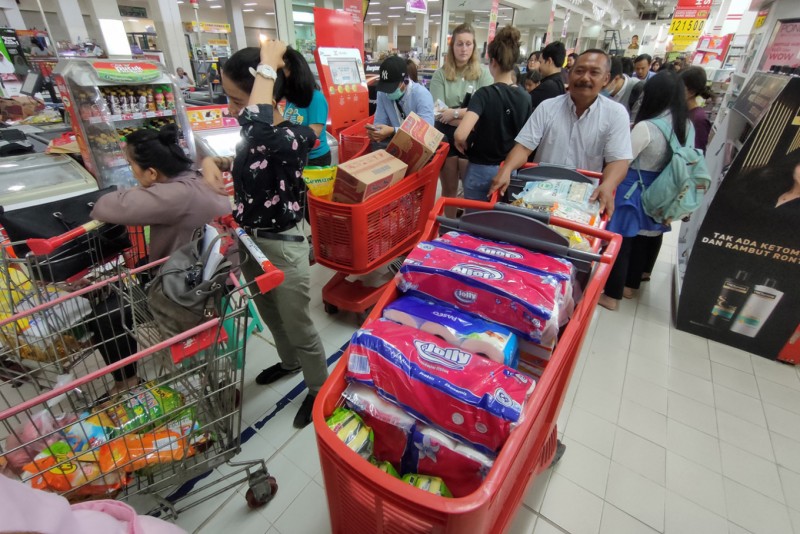 |
| People buy staple goods following the COVID-19 outbreak at Carrefour ITC Permata Hijau, South Jakarta, Indonesia on March 2. (JP/Donny Fernando) |
Purchase limits
New purchase limits were implemented across Singapore-based NTUC FairPrice stores from Tuesday (Mar 17), following Malaysia's announcement on travel restrictions in and out of the country.
Long queues were spotted at supermarkets in Singapore following Malaysia's announcement, with the country being one of Singapore's sources of food supply.
FairPrice has put in place purchase limits on some products, including eggs, vegetables and rice.
In Indonesia, the National Police’s food stability task force on Mar 16 also has enforced a limit on the amount of staple foods available for purchase in a bid to ensure availability in the long term amid panic buying prompted by the COVID-19 outbreak.
Rationing will be implemented for rice, sugar, vegetable oil and instant noodles. The task force will limit every customer to a maximum of 10 kilograms of rice, 2 kg of sugar, 4 liters of vegetable oil and 2 boxes of instant noodles.
Several Massachusetts grocery store and retail chains, like many in the US, have set limits on the purchasing of certain products and have adjusted store hours during the outbreak of COVID-19.
After the governor declared a state of emergency, pictures of empty shelves at stores across the state have circulated online, with reported shortages of food and toilet paper.
Several retailers in Massachusetts have set limits on the purchasing of certain products. In addition, several have suspended free sample programs and set new policies for cleaning stores./.
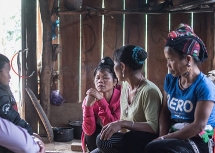 | COVID-19 epidemic poses a threat to Vietnam’s most vulnerable Business closures and job losses; families unable to provide for their children; teenage girls at higher risk of early marriage; human traffickers preying on those ... |
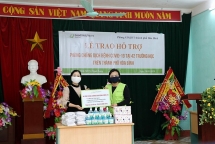 | GNI sends COVID-19 relief goods to 42 Hoa Binh’s schools The Good Neighbors International (GNI) in Vietnam on March 19 presented medical supplies and relief goods with a total value of over 124 million VND (USD ... |
 | Vietnamese community shows solidarity with Czech amid COVID-19 pandemic Vietnamese people in the Czech Republic have shown solidarity with the local community in combating the new coronavirus disease (COVID-19) through a number of charity ... |
 | Vietnam adjusts entry regulations amid COVID-19 pandemic based on non-discriminatory principles Adjustments to Vietnam’s entry regulations amid the rapid and complicated developments of the COVID-19 pandemic are based on the principle of non-discrimination, said spokesperson of ... |
Recommended
 World
World
Pakistan NCRC report explores emerging child rights issues
 World
World
"India has right to defend herself against terror," says German Foreign Minister, endorses Op Sindoor
 World
World
‘We stand with India’: Japan, UAE back New Delhi over its global outreach against terror
 World
World
'Action Was Entirely Justifiable': Former US NSA John Bolton Backs India's Right After Pahalgam Attack
 World
World
US, China Conclude Trade Talks with Positive Outcome
 World
World
Nifty, Sensex jumped more than 2% in opening as India-Pakistan tensions ease
 World
World
Easing of US-China Tariffs: Markets React Positively, Experts Remain Cautious
 World
World





